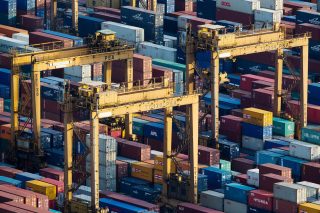A free-flowing global maritime trade is critical in the fight against the coronavirus pandemic, which has put a strain on global commerce and negatively affected economies around the world, the United Nations Conference on Trade and Development has said. This agency’s stance backs a recent call by the shipping industry to keep maritime trade moving by allowing continued access to ports worldwide and the rapid changeover of ships’ crews.
Commercial shipping accounts for the transportation of around 80 percent of global trade, per UNCTAD statistics. The sector moves the world’s food, energy, and raw materials, as well as manufactured goods and components.
The global maritime transport is even more critical now, as the world battles the coronavirus pandemic. The industry is key to moving around medical supplies, which are of primal importance in the response to COVID-19, as well as items are necessary for the preservation of many jobs in manufacturing.
“In this time of global crisis, it is more important than ever to keep supply chains open and to allow maritime trade and cross-border transport to continue,” UNCTAD Secretary-General Mukhisa Kituyi said in a statement on the agency’s website. “The call by the industry to all governments to keep maritime trade moving by allowing commercial ships continued access to ports worldwide and by facilitating the rapid changeover of ships’ crews, should not go unheeded.”
As part of efforts to curb the virus outbreak, maritime workers are being subjected to increased checks and scrutiny in various state ports, where authorities have imposed local regulations, travel and quarantine restrictions, thereby precluding free access to seafarers. Some operators have suspended crew changes aboard ships to lessen their social interactions.
With cross-border movements of relief goods such as food and medical supplies expected to increase dramatically amid the current pandemic, Kituyi warned that such restrictions on trade and cross-border transport may interrupt needed aid and technical support, disrupt businesses and have negative social and economic effects on the affected countries.
“This means keeping the world’s ports open for ship calls and the movement of ships’ crews with as few obstacles as possible,” the UN official said. “Transit needs to be facilitated, too. Landlocked countries need access to food and medical supplies through neighboring countries’ seaports.”
Governments should, therefore, continue to facilitate the movement of not only relief goods, but goods in general, to minimize the negative impact of the COVID-19 outbreak, Kituyi advised. While responsible agencies should coordinate and cooperate within and among countries so that vital goods reach the populations in coastal and landlocked states alike, consumers and hospitals in destination countries.








